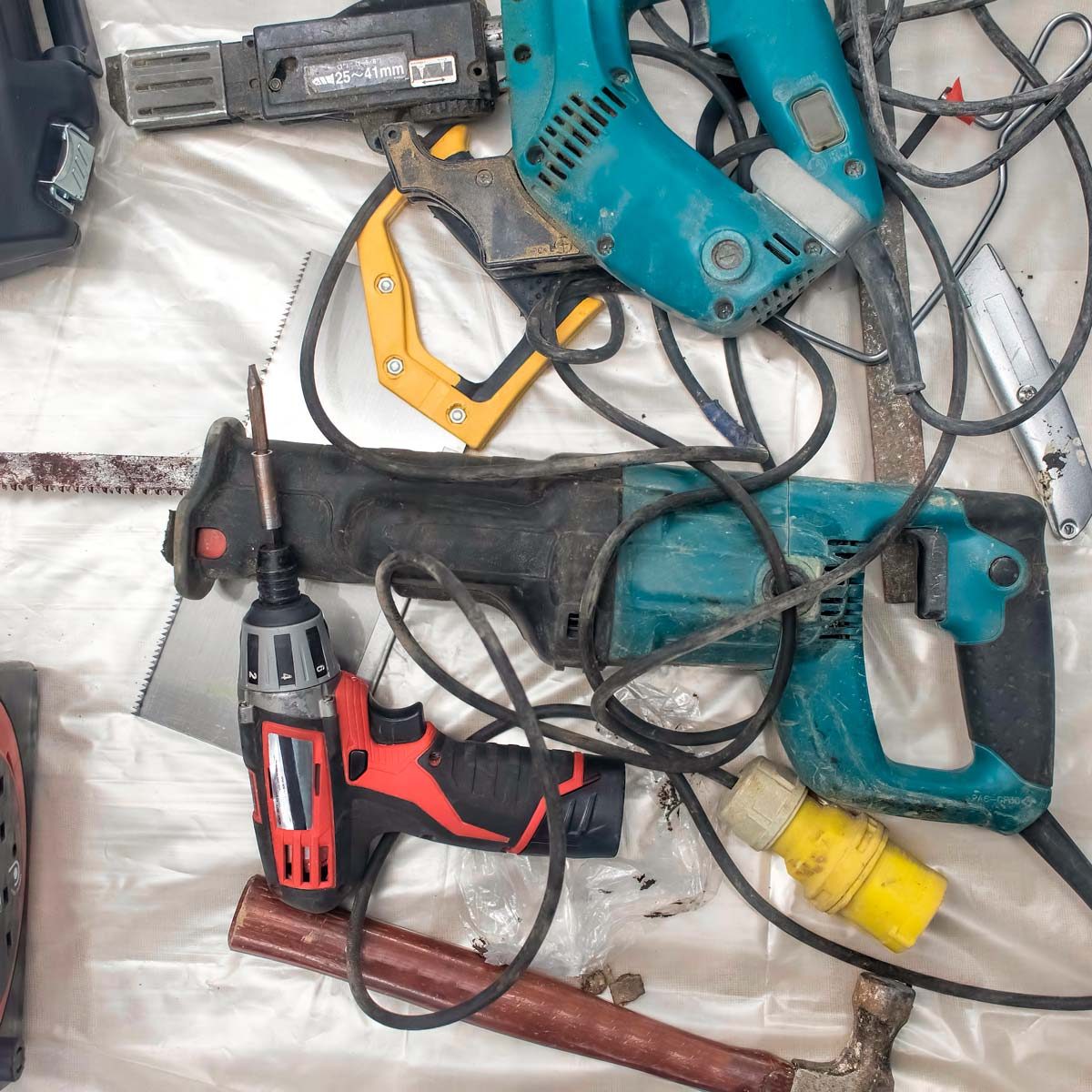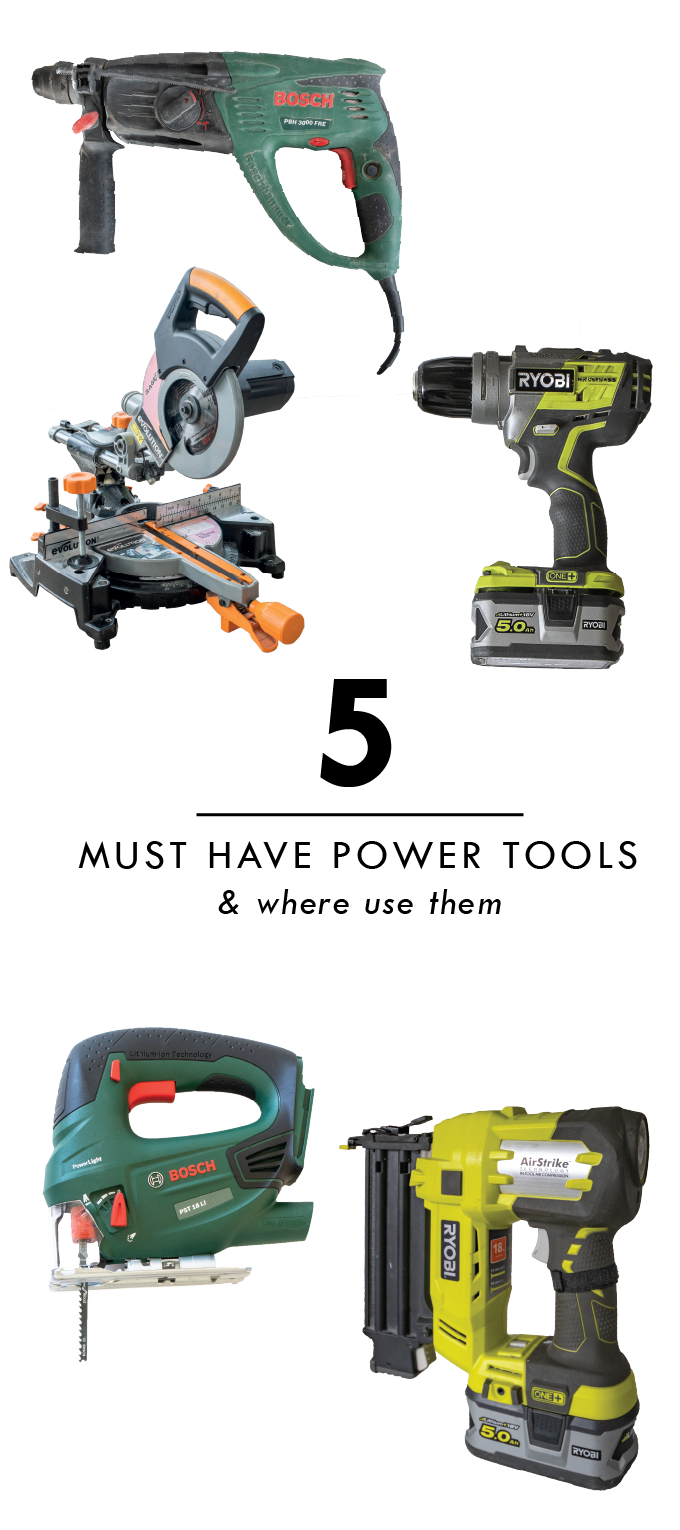Looking for some creative ideas on what to do with used power tools? Don’t worry, I’ve got you covered! Whether you’ve upgraded to newer tools or just have some lying around, there’s plenty you can do with them that’s both fun and practical. So let’s dive in and explore some exciting possibilities!
Got some old power tools gathering dust in your garage? Well, you’re in luck! With a little imagination, you can transform them into unique works of art or repurpose them in clever ways. From creating funky sculptures to building functional household items, the options are endless. So don’t toss those tools just yet – let’s find out how you can turn them into something truly remarkable!
Ready for some hands-on fun? Grab your used power tools because we’re about to embark on a DIY adventure! Whether you enjoy woodworking, metalworking, or tinkering with electronics, there are countless projects that can put those tools to good use. Get your creative juices flowing as we explore the exciting world of repurposing and upcycling. You’ll be amazed at what you can accomplish with a little inventiveness and those trusty power tools!
1. Sell them online through platforms like eBay or Craigslist.
2. Donate them to a local vocational school or community center.
3. Trade them in at a tool rental store for credit towards new ones.
4. Recycle them at a designated electronic waste recycling facility.
5. Repurpose them for DIY projects or creative crafts. So, put those tools to good use and give them a second life!

What to Do with Used Power Tools: A Comprehensive Guide
Are you wondering what to do with your used power tools? Whether you’ve upgraded to newer models, no longer have a need for them, or they’re simply collecting dust in your garage, there are several options available to you. In this comprehensive guide, we’ll explore various ways to handle your used power tools responsibly and ethically. From selling and donating to recycling and repurposing, we’ll cover it all. Keep reading to discover the best course of action for your old power tools!
1. Sell Your Used Power Tools
If your power tools are in good working condition and have some life left in them, selling them can be a great option. There are several platforms available where you can list your tools, such as online classified ads, auction websites, and even dedicated power tool marketplaces. Make sure to clean your tools, take clear photos, and provide accurate descriptions to attract potential buyers. Remember to price them competitively based on their age, condition, and brand.
Before you sell your tools, it’s a good idea to check if they’re covered by any warranty or if the manufacturer offers a trade-in program. Some brands might have specific policies in place that can benefit you or potential buyers. Additionally, consider offering a warranty or money-back guarantee to instill confidence in potential buyers and make your tools stand out.
Lastly, don’t forget to research the market value of similar used power tools to ensure you’re pricing your items appropriately. Remember that factors like brand reputation, rarity, and demand can influence the final selling price.
2. Donate Your Used Power Tools
If you no longer need your power tools and would like to give back to your community, consider donating them. Many nonprofit organizations and vocational schools accept tool donations to support their programs and help those in need. Before donating, clean and inspect your tools to ensure they’re in good working condition. It’s important to provide tools that are safe and functional to the recipients.
Research local vocational schools, community centers, or trade programs that might be in need of power tools. Some organizations might have specific guidelines or restrictions on the types of tools they accept, so it’s crucial to reach out and confirm their requirements. Additionally, some charities might provide donation receipts for tax purposes, so you can potentially benefit from tax deductions when you donate your used power tools.
By donating your tools, you can make a positive impact in someone’s life and contribute to the development of vocational skills in your community. It’s a rewarding way to repurpose your power tools and ensure they continue to serve a purpose.
3. Recycle Your Used Power Tools
If your power tools are no longer functional or in poor condition, recycling them is the eco-friendly choice. Power tools often contain components that can be harmful to the environment if not disposed of properly. To ensure responsible recycling, it’s essential to find a reputable recycling center or program in your area that accepts power tools.
Start by checking with your local waste management facilities to see if they have specific guidelines for power tool disposal. They may provide drop-off locations or pickup services for recycling. Additionally, some power tool manufacturers have recycling programs in place for their products. Research the brand of your tools to see if they offer any recycling initiatives or take-back programs.
When recycling your power tools, it’s important to remove any batteries or hazardous materials they may contain. Check the manufacturer’s recommendations or contact the recycling center for guidance on how to safely separate and dispose of these components. By recycling your power tools, you’re ensuring that valuable resources are recovered and reused while minimizing the impact on the environment.
4. Repurpose Your Used Power Tools
If you’re feeling creative and have some DIY skills, repurposing your old power tools can be a fun and rewarding project. Many power tool parts can be salvaged and used for various purposes. For example, old drill motors can be turned into bench grinders or rotary tools. Handles and switches can be repurposed for other tools or even used in unique home decor projects.
Before repurposing your power tools, think about your needs and interests. Consider how the parts can be utilized in different projects or if they can be repurposed as standalone tools. Look for inspiration online or in DIY magazines to find ideas that resonate with you. Keep in mind that repurposing power tools may require some additional materials and tools, so make sure you have the necessary resources before delving into your project.
Repurposing not only helps extend the lifecycle of your power tools but also allows you to tap into your creativity and craftsmanship. It’s a great way to give your old tools a new lease on life while giving your projects a unique touch.
Key Takeaways: What to Do with Used Power Tools?
- Donate your used power tools to local trade schools or vocational programs.
- Sell them online through platforms like eBay or Craigslist.
- Recycle them at specialized recycling centers to prevent harmful waste.
- Consider repairing and refurbishing them to extend their lifespan.
- Trade them in for new tools at certain hardware stores or tool retailers.
Frequently Asked Questions
In this section, we will answer some common questions related to what you can do with used power tools. Whether you’re looking to declutter, sell, or donate your old power tools, we’ve got you covered. Read on to find out more!
1. How can I responsibly dispose of my used power tools?
When it comes to disposing of used power tools, it’s important to handle them responsibly for both safety and environmental reasons. First, check if your local municipality has any specific guidelines for power tool disposal. You can usually find this information on their website or by contacting your local waste management department.
If your power tools are still in working condition, consider donating them to a charitable organization or a vocational school that trains aspiring tradespeople. You can also explore trade-in programs offered by manufacturers or retailers, where you can exchange your old tools for a discount on new ones. If your power tools are beyond repair, contact a local recycling center or hazardous waste facility to properly dispose of them.
2. What are some options for selling my used power tools?
If you’re looking to sell your used power tools, there are various options available. One popular choice is online marketplaces like eBay or Craigslist, where you can list your tools and connect with potential buyers in your area. Make sure to take clear and detailed photos of your tools and provide accurate descriptions to attract buyers.
You can also consider selling your power tools at a garage sale or a local flea market. These options allow you to interact with buyers directly and negotiate prices. Another option is to approach local pawn shops or second-hand tool stores that buy used tools. They will assess the condition of your tools and offer you a fair price.
3. How can I safely store my used power tools?
Proper storage is essential to prolong the lifespan of your used power tools and ensure they remain in good working condition. Firstly, clean your tools thoroughly to remove any debris or dust. Next, store them in a dry and secure place, away from extreme temperatures and moisture.
Investing in a proper storage cabinet, toolbox, or carrying case can help protect your tools from damage. Make sure to organize them by size and type, using dividers or labels to easily locate them when needed. Lastly, always check the power cords and batteries before storing to prevent any accidents or damage.
4. Are there any safety precautions I should take when handling used power tools?
Absolutely! Safety should be a top priority when dealing with used power tools. Firstly, always wear appropriate personal protective equipment (PPE), such as safety goggles, gloves, and ear protection. This will safeguard you from any potential injuries.
When using power tools, make sure to familiarize yourself with the manufacturer’s instructions and safety guidelines. Inspect the tools for any visible damage or loose parts before use. Remember to unplug or remove batteries when not in use. And never leave power tools unattended, especially around children or pets.
5. Can I donate my used power tools to a nonprofit organization or community project?
Yes, donating your used power tools to a nonprofit organization or community project is a wonderful way to give back. Many organizations, such as Habitat for Humanity, accept power tool donations to support their projects and initiatives.
You can also reach out to local schools, community centers, or vocational training programs that might benefit from the donation of power tools. Before donating, ensure that the tools are in good working condition and can be safely used by the recipients. It’s always best to contact the organizations beforehand to inquire about their specific requirements and donation process.

How To Buy Used Power Tools | THE HANDYMAN |
Summary
Got some old power tools lying around? Here’s what you can do with them.
Donate them to a local tool library or trade them in for new ones. You can also sell them online or at a garage sale. If they’re broken, try repairing them or recycle them responsibly.
Remember, it’s important to keep our environment clean and make good use of our old tools. So, get creative and find a new home or purpose for your used power tools today!
